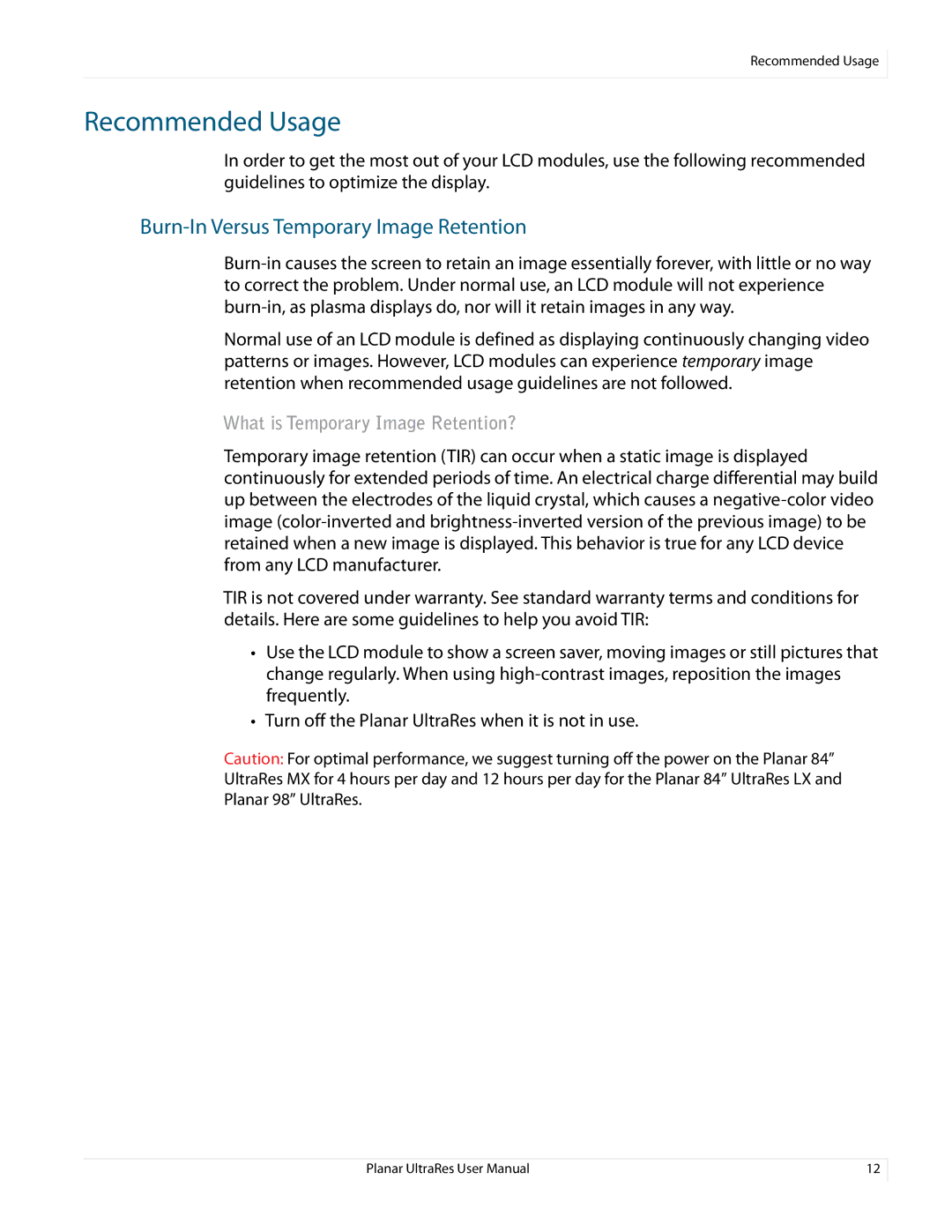
Recommended Usage
Recommended Usage
In order to get the most out of your LCD modules, use the following recommended guidelines to optimize the display.
Burn-In Versus Temporary Image Retention
Normal use of an LCD module is defined as displaying continuously changing video patterns or images. However, LCD modules can experience temporary image retention when recommended usage guidelines are not followed.
What is Temporary Image Retention?
Temporary image retention (TIR) can occur when a static image is displayed continuously for extended periods of time. An electrical charge differential may build up between the electrodes of the liquid crystal, which causes a
TIR is not covered under warranty. See standard warranty terms and conditions for details. Here are some guidelines to help you avoid TIR:
•Use the LCD module to show a screen saver, moving images or still pictures that change regularly. When using
•Turn off the Planar UltraRes when it is not in use.
Caution: For optimal performance, we suggest turning off the power on the Planar 84” UltraRes MX for 4 hours per day and 12 hours per day for the Planar 84” UltraRes LX and Planar 98” UltraRes.
Planar UltraRes User Manual | 12 |
